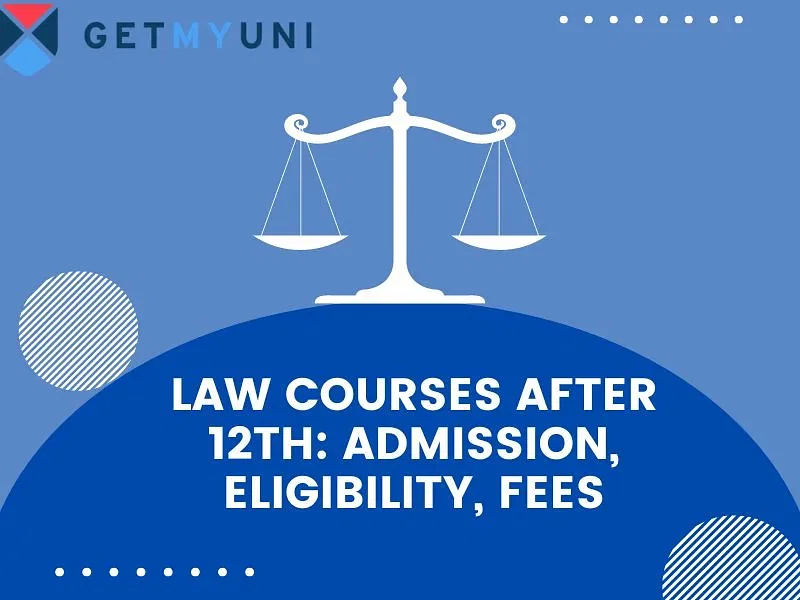Are you confused between choosing between LLB vs MBA? Get insights about the course prospects, scope, salary and requirements for LLM and MBA.
Most people are perplexed when pursuing a course after completing their UG degree, especially when there are only two options like LLB vs MBA. MBA and LLB are two of the most common options that come to most candidates' minds.
Bachelor of Laws (LLB) is a three-year undergraduate course covering the four distinct types of laws in six semesters, whereas MBA is a two-year postgraduate degree that focuses more on management-based courses that are critical for any organization's success.
Students inclined towards more management-oriented courses can opt for MBA, whereas candidates inclined towards legal studies can opt for law courses. So let's look at LLB vs MBA and understand which one's better than the other.
LLB vs MBA Key Highlights
Both LLB and MBA degrees are excellent stepping stones into a variety of other professions. The key differences of LLB vs MBA are as follows:
| Criteria | LLB | MBA |
| Full-form | Bachelors of Law | Masters of Business Administration |
| Duration | 3Years | 2Years |
| Eligibility criteria | Graduation (Any stream) with a minimum 50% aggregate. | Graduation (Any stream) a minimum 45% aggregate |
| Average Fee | INR 1.5 LPA | INR 5 LPA |
| Average Salary | INR 5 - 10 LPA | INR 5 - 8 LPA |
| Job Roles | Legal Manager, General Counsel, HR Manager, etc. | Marketing Manager, Operations Manager, Financial analyst |
Also Read: Online MBA vs Regular MBA: Which is Better in 2025?
LLB vs MBA Overview
The key differences between LLB vs MBA is that the Bachelor of Legislation, or LLB, is a three-year undergraduate programme that focuses on the study of legislative law, with six semesters dedicated to each of the four categories of laws. Students will learn about corporate, legislative, business, and other types of legislation in this course. Legal counsellor, lawyer, public prosecutor, and more positions are available in this profession.
MBA is a two-year postgraduate management programme that focuses on human resources, finance, marketing, sales, and customer service administration. The purpose of this course is to generate qualified professionals who will be able to manage effectively in today's entrepreneurial environment. MBA graduates can work in a variety of industries, including aviation, marketing, fashion, education, and information technology.
Also Read: Different Types of MBA Courses in 2025: Key Differences, Career Scope
LLB vs MBA Eligibility Criteria
There are specific Eligibility criteria for both LLB vs MBA courses. One has to have a mandatory graduate degree of a minimum of 3 years to be eligible for the courses. The admission process differs based on colleges and their choices.
LLB
Candidates who wish to pursue the LLB course must meet certain requirements to be considered. According to BCI, the following are the eligibility requirements for three-year LLB courses:
- To pursue an LLB course, candidates must be graduates (three-year or four-year bachelor's degree in any subject/discipline).
- Other than that, some colleges set a minimum percentage requirement for candidates to meet to be admitted to their three-year LLB program. The (minimum) percentage requirement for General category candidates ranges from 45 percent to 55 percent, while it ranges from 35 percent to 45 percent for SC/ST category candidates.
MBA
The following are the full-time MBA eligibility requirements:
- Graduation in any discipline or equivalent from a recognized university is the basic eligibility criteria for MBA (full-time).
- The majority of institutes adhere to the minimum score criteria in Graduation, 50% on average or equivalent. The minimum aggregate score for students in the Reserved category is 45 percent.
- Candidates with a bachelor's degree are also eligible to apply for an MBA program, as long as they show proof of completing their bachelor's degree within the time frame specified by the institute.
Also Read: MBA vs LLM: Which is Better?
LLB vs MBA Entrance Exams
The admission process for both LLB vs MBA depends on the eligibility criteria and entrance examination scores. However, there are plenty of entrance exams conducted for both these courses on a national-level and university-level. Some of the top entrance exams for the LLB vs MBA are discussed below.
LLB Entrance Exams
Some colleges create a cut-off list based on merit scores and entrance exams, and if a student meets the required criteria, he or she is eligible to enroll in an LLB program. Some of the top LLB colleges organize LLB entrance exams such as:
- TS LAWCET
- AP LAWCET
- SET
- SLAT
- DU LLB
MBA Entrance Exams
An entrance exam is followed by a GD/PI as part of the MBA admissions process. Different MBA programs accept different types of exam scores. Various entrance exams on which the admission process is based are:
- CAT
- XAT
- MAT
- NMAT
- SNAP
LLB or MBA Advantages of Pursuing
Some people may wish to pursue law as a career because they want to uphold justice, which is a great and admirable goal. However, a lawyer's employment is not limited to courtrooms; huge corporations pay them to investigate numerous legal issues regularly. So let's have a look at some of the advantages of taking the LLB vs MBA course.
- Mastering a Strong Foundation for a Lucrative Career
- Skills in Critical Thinking and Reasoning
- Stability of the Economy
- Respect and Prestige
A dedication to learning, refining, and implementing abilities that may help a firm prosper is demonstrated by completing an MBA program. Professionals with MBAs also have a better feeling of self-assurance in their marketability and the quantity of knowledge they can contribute to diverse initiatives. These are only a handful of the benefits of earning an MBA.
- A better understanding of the global market
- Enhancing communication skills
- Expanded network of professionals
- Increased opportunities
- More effective time management
Also Read: MBA vs M.Sc: Job, Scope, Salary, Syllabus, Top Colleges, Benefits
LLB or MBA Skills to excel
Both the LLB vs MBA courses require similar types of skills to excel in the career, but few are specific as per the course requirements.
LLB
- Leadership Skills
- Time Management and Organisation Skills
- Interpersonal Skills
- Critical Thinking
- Empathy and Compassion
- Communication Skills
- Decision Making Skills
- Honesty and Trustworthiness
MBA
- Problem-solving attitude
- Communication skills
- Digital marketing
- Creativity
- Teamwork
- Interpersonal skills
- Critical thinking.
Also Read: MBA vs EMBA - Which is Better?
LLB vs MBA Career opportunities
Both LLB vs MBA are well-known courses that offer students outstanding career opportunities. As these two courses are different, however, the career paths are significantly different after the two courses.
An LLB graduate has the necessary skills for the job in the field of law and can obtain LLB jobs under the following job titles:
- Advocate/Lawyer
- Business Consultant
- Human Resource Manager
- Deputy Legal Advisor
MBA graduates are hired in a variety of private and public sector organizations. There are various job profiles one can opt for:
- Senior Business Analyst
- Credit Analyst
- Lead Business Analyst
- Sales Director
Also Read: MBA vs PGDM vs MMS - Which is Better?
LLB vs MBA Salary
Both LLB vs MBA have a high market value. Candidates must know that a student's salary will depend on a broad range of factors, such as university qualifications, university reputation, etc. LLB and MBA graduates are skilled enough to handle the role of high compliance with ease.
| Designation | Average Salary (INR) |
| Lawyer | INR 7LPA |
| Attorney | INR 10 LPA |
| Law Officer | INR 6.56LPA |
| Legal Manager | INR 8 LPA |
The Average Salary for an MBA graduate is:
| Designation | Average Salary (INR) |
| Marketing Manager | INR 5.5LPA |
| Regional Sales Manager | INR 3.6LPA |
| Operations Manager | INR 5.4LPA |
| Digital Marketing Analyst | INR 5.1LPA |
Also Read: MBA vs PGDM: Eligibility, Admission, Top Colleges, Job Scope
LLB vs MBA Best Colleges of India
Best colleges are chosen based on various rankings based on placement scenario, fee structure, Faculty ratings, Infrastructure, etc. Some of the top colleges for LLB vs MBA are stated below:
Best LLB Colleges of India
- National Law School of India University
- NLU Jodhpur
- IIT Kharagpur
- Nalsar University of law
- Gujarat National Law University
Best MBA Colleges of India
LLB vs MBA Which is Better?
As previously stated, comparing both of these courses is simple if candidates are well-versed in the subject matter. First and foremost, LLB vs MBA are completely different courses, and both offer a good reputation in the job market. An individual's area of interest determines the best path for a career.
The best course will always be determined by genuine interest. Therefore, it is always best to choose the best path based on the area of interest.










